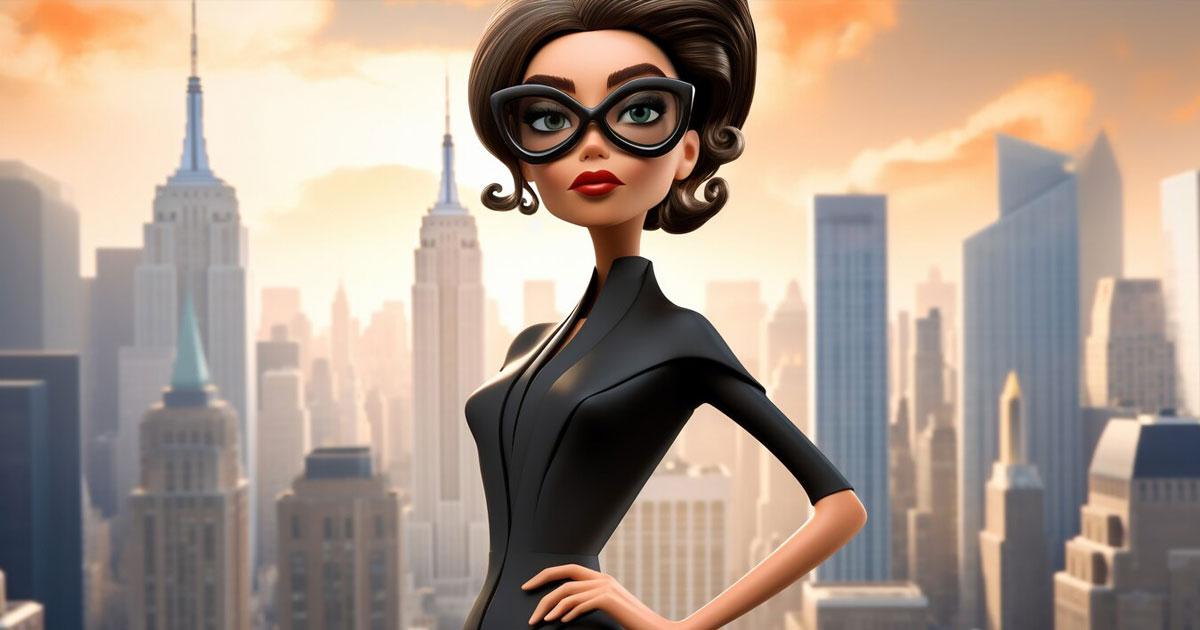The use of media personalities' likenesses in video games — a legal analysis by REVERA
What risks might arise from using the likeness of popular figures? Specialists from the legal company REVERA, Svetlana Gordey and Daria Savko, discussed this in their column for App2Top.
This is how AI sees a celebrity (sourced from Freepik)
Svetlana Gordey and Daria Savko
Creating characters for video games whose appearance resembles that of celebrities is a popular strategy used to draw attention to the game itself through the popularity of "star" prototypes.
This approach helps attract new players who are fans of the celebrity, and also boosts the game's popularity and, consequently, its sales. Moreover, having such characters enables players to feel closer to their idols and form a strong emotional bond with the game world.
However, using the likeness of media personalities in video games (or any other products) without permission can result in legal complications.
How exactly is a celebrity's likeness protected in a video game?
In cases of infringement on a celebrity's likeness, it is necessary to determine the country in which the violation will be assessed.
As a general rule, jurisdiction is determined by the place of the violation. For instance, if the application is available in a digital store, such as Google Play or the App Store, one may litigate in any country where the app is available. Most often, parties choose the jurisdiction where the defendant's company is located, as this avoids the need to recognize the court decision for execution.
USA
The right to publicity prohibits the commercial use of a celebrity's likeness, as well as attributes associated with them (clothing, voice, etc.). In video games, this prohibition covers the use of characters whose appearance is similar or identical to famous individuals.
It's important to understand that the prohibition applies specifically to commercial use: the right to publicity does not apply if the likeness is used purely for creative purposes, meaning there is no intent to profit from the use of the likeness in the game. However, caution is advised even with such rights: whether there was commercial use is a matter of proof. Thus, if a famous individual believes you are unlawfully using their likeness, they have the right not only to prohibit such use but also to recover damages from you.
One of the most notable cases involving the unauthorized use of a celebrity's likeness was the dispute between Edgar Davids and Riot Games. The issue revolved around the similarity of a League of Legends character to the famous soccer player, specifically the elements that made up his iconic look—unique glasses, dreadlocks, physique, and sports career. Since the game's audience also recognized their idol in the character without Riot having obtained Davids' permission to use his likeness, the court found a violation. Consequently, the developer had to compensate the celebrity for damages.
Each US state also has its own criteria for protecting publicity rights, resulting in varying degrees of protection. The issue of the duration of publicity rights is relevant: during the person's life or extending to their heirs after death?
A prominent example of such a legal issue is Courtney Love's claim regarding Activision's use of her late husband Kurt Cobain's likeness in the video game Guitar Hero 5, especially performing songs from other bands besides Nirvana. According to her, such use of his likeness was not agreed upon. Nonetheless, Activision representatives stated that Courtney had signed the licensing agreement for Cobain's likeness.
Thus, in the US, the intentional use of a media personality's likeness with resulting commercial gain is considered a violation of publicity rights.
European Union (example of Germany)
In Germany, the approach to regulating the right to likeness differs from that in the US. A concept of general personality rights has been developed based on provisions of the German Constitution and Civil Code. The scope of general personality rights is quite broad, with two of its aspects (the right to one’s name and image) being protected by specific legislative provisions. German law also allows heirs to protect publicity rights for 10 years after the individual's death.
In German case law, one can find instances of protecting likenesses, including overall similarity, voice, signatures, and so forth. More importantly, a person can grant permission to use their likeness for a fee, allowing characters based on such a person to be created in video games.
Overall, the question of whether it suffices only to pay for the right to use the likeness or whether the final character needs to be coordinated with the prototype is a matter of agreement.
Non-EU European Countries (example of Belarus)
In Belarus, there is no separate regulation on protecting likenesses in intellectual property products. However, considering general regulations, Articles 25 and 28 of the Belarusian Constitution state that each citizen is guaranteed the protection of their personal non-property rights, such as freedom, inviolability, and personal dignity, privacy, honor, and dignity. Hence, the unauthorized use of a celebrity's likeness can be seen as an encroachment on their honor and dignity, especially if the image is used negatively or in a derogatory context.
How to properly use a celebrity's likeness in a video game?
While using "celebrity characters" is an effective way to market a game, it carries significant risks. Generally, the bigger the celebrity, the higher the risks and penalties in the absence of permission to use the likeness. Moreover, developing a character without proper permissions can negatively impact the video game developer's reputation.
If you plan to use a celebrity's likeness in a video game, consider the following points:
- Obtaining Permission. It’s crucial to obtain written consent from the celebrity or their label to use their likeness in the video game. This typically involves a contract, such as a licensing agreement, specifying the scope of the license (how the likeness can be used in the game and advertising, if applicable), duration, and territory of use. Generally, it’s unnecessary to specify the individual elements of the likeness, as the likeness in game settings usually aims to be holistic and recognizable.
- Respect for Human Dignity. When creating a media personality's likeness in a video game, respect for the individual’s dignity is essential. Avoid the use of offensive, negative, or vulgar depictions, as well as defamation.
- Trademark Use. If the celebrity's likeness is associated with a trademark, ensure you have the necessary permissions to use it.
- Advertising. Be cautious about using likenesses in places accessible before downloading the game, such as in the game description, screenshots in the App Store or Google Play, or in promotional visual materials. Such placements may be considered advertising, necessitating appropriate permission.
Therefore, before releasing a video game in local and international markets, it is vital to ensure that it does not contain elements that violate likeness rights of individuals—whether they are widely recognized or private individuals—and account for the relevant scope of use.

